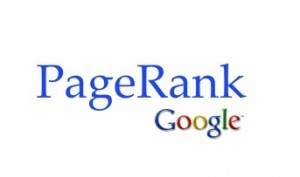 Your website articles should contain no more than 1 or 2 main ideas (aka topics, keywords). Writing exhaustive reviews on every post to show off your expertise is an SEO mistake, it will prevent your webpages from ranking for any keyword.
Your website articles should contain no more than 1 or 2 main ideas (aka topics, keywords). Writing exhaustive reviews on every post to show off your expertise is an SEO mistake, it will prevent your webpages from ranking for any keyword.
Using too many keywords dilutes the main idea (and the actual relevance) of your article.
What is a Keyword?
A keyword may be the main idea, subject or topic of your article. A patient will also type keywords into the search bar when “Googling” something on the Internet.
Each page or post of your website is indexed separately for just a few keywords. Each webpage (vs. website) can individually rank high on SERP for particular keywords.
It’s much more likely to get a single page of your site to rank for one or two keywords than to rank for several.
It’s as if too many keywords compete with each other.
What is Your Main Idea?
A similar problem occurs when medical practices place all their doctors on the same “About Us” page. Just as one page can not rank for multiple keywords, one page with too many doctors will not rank well as no specific doctor can standout.
Most patients are looking for very specific doctor and will use specific keywords to filter their search.
For instance, my “About” page will rank well for searches containing the words “retina specialist in northern Virginia,” yet I won’t rank well when a patient is looking for a cataract surgeon or glaucoma specialist.
More Pages = More Rankings
Another advantage of “one post one keyword” is that you will have more pages to be indexed. More indexed pages mean more visibility of your website!
For instance, in our doctor example, let’s have each doctor have her own “About” page instead of having one page for, say, 5 doctors.
There are now 5 pages that may be optimized and rank well for your practice versus 1!
What Can You Do?
Keep your copywriting limited. If you can’t get all your ideas into the same article, write another article! We recommend Scribe SEO to help with your writing and keyword analysis. This simple plugin will take away most of the guess work with your writing. It has been a great tool for me!
Articles focused on one main idea are also much easier to read for your patients. If you are creating an “About” page for your business, create a separate page for each provider. This way, you can customize the SEO for each doctor!
Articles should be straight forward, focused and written to answer/inform quickly. SEO is easiest if optimizing for one or two keywords. Your article has a better chance of rising to the top!
To your success!
“Randy”
Randall V. Wong, M.D.
Medical Website Optimization
www.MedicalMarketingEnterprises.com


